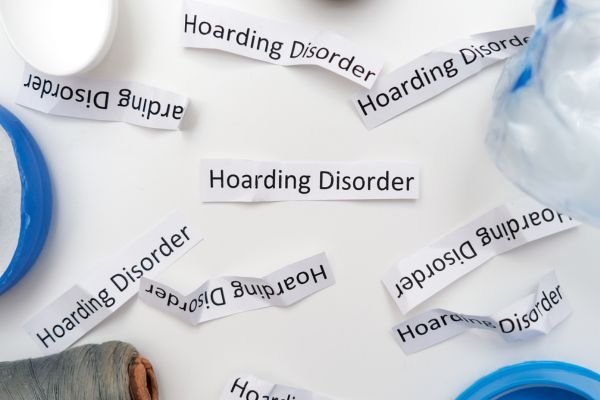Hoarding disorder is a persistent difficulty discarding or parting with possessions, regardless of their actual value. This behavior can lead to clutter that disrupts an individual’s ability to use their living or work spaces effectively. Hoarding is not only about poor organization but also about significant distress and impairment in functioning. This article delves into the nature of hoarding disorder, its consequences, and strategies for management and intervention.
What is hoarding disorder?
Hoarding disorder is characterized by an ongoing reluctance to discard items because of a perceived need to save them. People with hoarding disorder experience distress at the thought of getting rid of the items, resulting in excessive accumulation that can create living conditions deemed hazardous.
Symptoms of hoarding disorder
- Inability to discard possessions.
- Severe anxiety when attempting to declutter.
- Difficulty organizing possessions.
- Distress, such as feeling overwhelmed or embarrassed by possessions.
- Suspicion of others touching ítems.
- Obsessive thoughts about items, such as fear of running out of an item or of needing it in the future.
Causes and risk factors
The exact cause of hoarding disorder is unknown, but it often involves a combination of genetic, psychological, and environmental factors. Risk factors include:
- Family history of hoarding.
- Traumatic life events.
- Presence of other mental health disorders, such as depression or anxiety.
- Personality traits such as indecisiveness.
Impact
Hoarding can significantly impact various aspects of a person’s life, including health, social interactions, and overall well-being.
Health risks
Excessive clutter poses serious health risks, such as increased risk of falls, injury, and difficulties in daily living. Clutter can also prevent emergency services from accessing the home in a timely manner, posing severe risks during emergencies.
Social isolation
Individuals with hoarding disorder may experience social isolation due to shame or embarrassment about their living conditions. This isolation can exacerbate stress, anxiety, and depression, creating a vicious cycle that makes the disorder worse.
Economic burden
The disorder can also have economic consequences, including lost productivity and financial difficulties stemming from compulsive buying or renting additional storage space.
Treatment and management
Treatment for hoarding disorder often involves psychotherapy, particularly cognitive-behavioral therapy (CBT), which helps individuals decrease their hoarding behavior and improve decision-making and organizational skills.
Cognitive-Behavioral therapy
CBT for hoarding disorder focuses on helping the person understand why they feel compelled to hoard and teaching them to organize and make decisions about their possessions.
Medication
Though primarily treated with psychotherapy, medications such as SSRIs (Selective Serotonin Reuptake Inhibitors) can also be used to help reduce the symptoms of hoarding, particularly if the individual also suffers from depression or anxiety.
Support groups
Participating in support groups can also be beneficial, providing individuals with practical advice and emotional support from others who face similar challenges.
Professional cleaning services: The role of Infinity Cleanse
Infinity Cleanse is a specialized company dedicated to providing services tailored for individuals with hoarding disorder. They offer comprehensive cleaning solutions that help mitigate the overwhelming effects of hoarding. The company employs sensitive and experienced professionals who work closely with clients to respectfully clear out clutter, sanitize the home, and restore it to a livable condition, all while considering the emotional and psychological needs of the individual.
Hoarding disorder is a complex mental health condition that requires a compassionate, multifaceted approach to treatment and intervention. Understanding the psychological underpinnings of hoarding is crucial for effective management. Services like those provided by Infinity Cleanse are essential for addressing the physical aspects of hoarding, helping individuals reclaim their homes and lives. Through therapy, support, and professional cleaning services, individuals with hoarding disorder can find the help they need to overcome the challenges they face. Contact Us.

